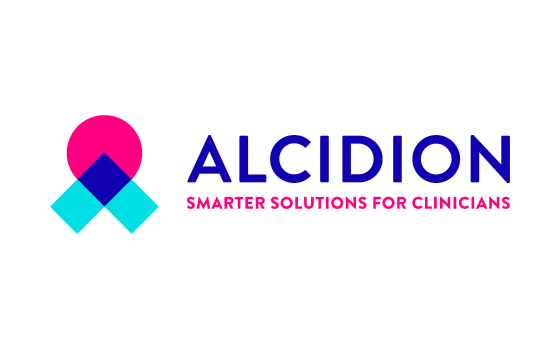 A systemic cause of patient harm could be better avoided with the help of technology, following the launch of Miya Results Tracking by health tech company Alcidion.
A systemic cause of patient harm could be better avoided with the help of technology, following the launch of Miya Results Tracking by health tech company Alcidion.
The new digital solution is designed to reduce the risk of test results not being followed up. It has been built to help healthcare professionals in hospital settings to more easily visualise, prioritise and acknowledge high volumes of tests results generated for patients every day, and to take appropriate action in a timely manner.
The issue of results not being acknowledged has become significant in healthcare systems around the world - posing risks including late or missed diagnosis for patients, potentially delayed treatment, and additional cost for healthcare systems.
Academic studies have revealed variation in the extent of the problem but in some cases, literature has shown as many as 62% of test results can go unacknowledged in inpatient settings, and as many as 75% in emergency departments (1). However, it is important to acknowledge that this is often a challenge caused by systems and processes used to manage results, rather than being the fault of busy clinicians.
Dr Paul Deffley, UK chief medical officer for Alcidion, said: "A billion laboratory tests alone are carried out in England and Wales each year at a cost of £2.2bn, many of them in hospital settings - where countless other scans and investigations are also carried out. Disparate ways that such high volumes of results are presented to busy clinicians within healthcare systems, can often create room for error that digital technologies haven’t adequately responded to until now.
"We aim to change that through Miya Results Tracking, which provides healthcare teams with a purpose-built mechanism to manage results more safely, at-scale, from a single screen. This is an important new capability for hospitals in reducing risks and in tackling what has become a critical patient safety issue around the world. It will equip clinical departments and individual clinicians with a digital safety net to help them quickly recognise and appropriately act on diagnostic information."
The solution works by bringing together and presenting patient results requested in hospital settings through a single screen. Clinical teams can access information from any location. They can filter results to departmental views, and can configure the system to look at relevant results, identify high-priority results that need to be actioned, or to see at-a-glance any outstanding results that need to be filed.
Results can also be filtered at an individual level - both for the clinician requesting tests, and at the patient level. This means clinicians can more easily ensure they have acknowledged and acted on results they have requested, and that decisions can be made for patients in context of a complete set of results.
Staff can create onward plans for patients from the same screen, ordering repeat or follow up examinations when needed, and requesting future review appointments.
Kate Quirke, Alcidion's CEO, said: "Hospitals need to manage many thousands of results in complex and busy environments. Through Miya Results Tracking, we have built a new capability to help support healthcare teams to do this more safely, whilst reducing the burden on busy clinicians under pressure. We believe this has the potential to help to address an important safety challenge in healthcare, and that strategically this has relevance to digital strategies being progressed in individual hospitals and across integrated care systems."
Built using the Miya Precision platform, Miya Results Tracking uses the FHIR interoperability standard to integrate with other hospital systems - allowing it to bring data into a single location for clinicians. It tracks a complete range of hospital results including pre-admission results, and those from inpatient and emergency department encounters. Results received after the patient leaves the hospital are also tracked, which is expected to address a complex challenge currently encountered in managing results after a patient has been discharged.
Miya Results Tracking can be deployed as part of a modular electronic patient record, or as a standalone solution, and can be used to enhance other technologies, such as a patient flow solution. For example, hospitals already using Alcidion's Miya Flow application, will be able to use the new capability to view and manage results from the digital patient journey board.
About Alcidion
Alcidion Group Limited (Alcidion) was founded with one simple belief, that is, smart technology can drive meaningful change.Alcidion is delivering smarter solutions for clinicians and enabling our clients to harness the power of their data. Alcidion’s platform, Miya Precision, delivers real-time interoperable data to support digitally enabled care. Miya Precision delivers efficiencies in clinical decision making, and real-time health informatics which contributes directly to the safer delivery of healthcare.
Alcidion offers a fully integrated digital patient care platform including Patient Flow Management, a Clinical Decision Support (CDS) system, Electronic Patient Record (EPR) and Patient Administration System (PAS).
Since listing on the ASX in 2011, Alcidion has acquired multiple healthcare IT companies and expanded its foothold in the UK, Australia, and New Zealand to now service over 400 hospitals and 85 healthcare organisations, with further geographical expansion planned.
With over 20 years of healthcare experience, Alcidion brings together the very best in technology and market knowledge to deliver solutions that make healthcare better for everyone.
1. Callen J, Georgiou A, Li J, et al.. The safety implications of missed test results for hospitalised patients: a systematic review. BMJ Qual Saf 2011;20:194-9. 10.1136/bmjqs.2010.044339